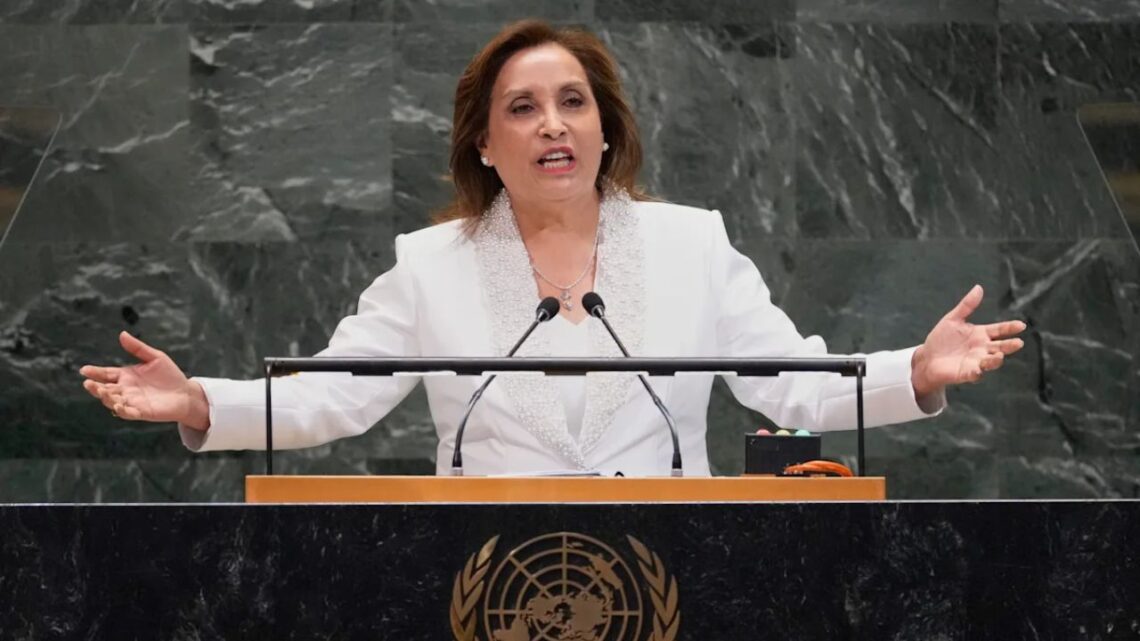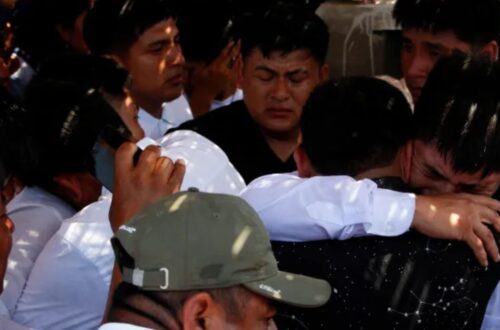A burst of gunfire at a packed cumbia concert in Lima has supercharged Peru’s political turmoil, thrusting President Dina Boluarte to the brink.
The attack—during an Agua Marina show at the Círculo Militar de Chorrillos on October 8, 2025—left at least five people wounded, including several musicians.
Police reportedly recovered 27 shell casings, and investigators suspect a mini-Uzi–type submachine gun was used.
For many Peruvians, the brazenness of a shooting inside a military-linked venue crystallized fears that violent crime and extortion are spiraling out of control.
Why the attack became a political tipping point
Peru’s security crisis didn’t start with this incident, but the symbolism proved devastating.
The country has struggled with rising homicides, shakedowns of transport operators and small businesses, and an extortion economy that now touches nightlife and entertainment.
Opposition lawmakers quickly channeled public anger into action, pushing impeachment motions against the president and securing enough support to open a trial.
To actually remove Boluarte, Congress must hit the constitutional threshold of 87 votes in the 130-seat chamber.
Government response and the blame game
The administration argues it has ramped up states of emergency, targeted police operations, and tougher penalties to disrupt criminal networks.
Officials say the problem is rooted in organized extortion rings and cross-border crime, insisting recent measures need time to bite.
But critics across the aisle contend that the government’s approach is reactive, not strategic, and that coordination among police, prosecutors, and local authorities remains weak.
With approval ratings already at historic lows, the concert shooting has made it harder for the president to rebuild trust.
Inside Congress: blocs, math, and timing
The immediate question is whether impeachment backers can convert momentum into 87 decisive votes.
Several blocs signaled support after the attack, a shift from earlier removal bids that fizzled.
Yet holdouts in centrist factions could still force concessions—on cabinet changes, a clearer security roadmap, or a packed agenda of anti-extortion bills—in exchange for softening their stance.
Any misstep by the government, or fresh violence, could sway the final count.
What removal would trigger
If Congress declares “permanent moral incapacity,” Boluarte would be dismissed at once. Under Peru’s succession rules, the president of Congress would assume the presidency on an interim basis.
That would mean a new cabinet, urgent security measures, and likely a renewed debate over election timelines.
Markets would price in another bout of political churn; Peru has cycled through multiple leaders in short order, and each transition complicates investment, social policy, and public safety planning.
Key facts at a glance
| Item | Details |
|---|---|
| Date of attack | October 8, 2025 (evening) |
| Venue | Círculo Militar de Chorrillos, Lima |
| Event | Agua Marina concert |
| Casualties | ≥5 wounded (including band members) |
| Evidence | 27 shell casings; suspected mini-Uzi |
| Political fallout | Impeachment trial opened against Boluarte |
| Removal threshold | 87 votes in a 130-seat Congress |
| Risk drivers | Rising homicides, extortion, low approval |
Why crime is the new legitimacy test
- Extortion’s reach: Criminal groups target transport routes, markets, and now live music and venues—communities feel defenseless.
- Institutional fragmentation: Frequent leadership changes and short-term emergency decrees have not produced durable gains in investigations, prosecutions, or conviction rates.
- Public fatigue: With trust eroded, the public increasingly views leadership through a single prism: Can you keep us safe? The concert shooting amplified that test.
Possible scenarios ahead
- Impeachment succeeds (≥87 votes): An interim president from Congress takes over, prioritizes security policy, and seeks a minimum consensus to stabilize institutions and set election timing.
- Impeachment fails (<87 votes): Boluarte survives but weakened, likely forced to reshuffle the cabinet, empower anti-extortion task forces, and offer measurable crime-reduction targets.
- Negotiated middle path: Congress trades votes for a packed, time-bound security reform agenda—expanded investigative powers, better data-sharing, and focused funding for high-incidence districts.
The Lima concert shooting compressed years of rising insecurity into one shocking moment—and put Dina Boluarte’s survival on the line.
Whether or not Congress reaches 87 votes, the episode marks a turning point: Peru’s leaders will be judged by tangible results against extortion and violent crime.
Without swift, credible progress—better policing, stronger investigations, real deterrence—political maneuvers will do little to restore public trust or the sense of safety Peruvians demand.









